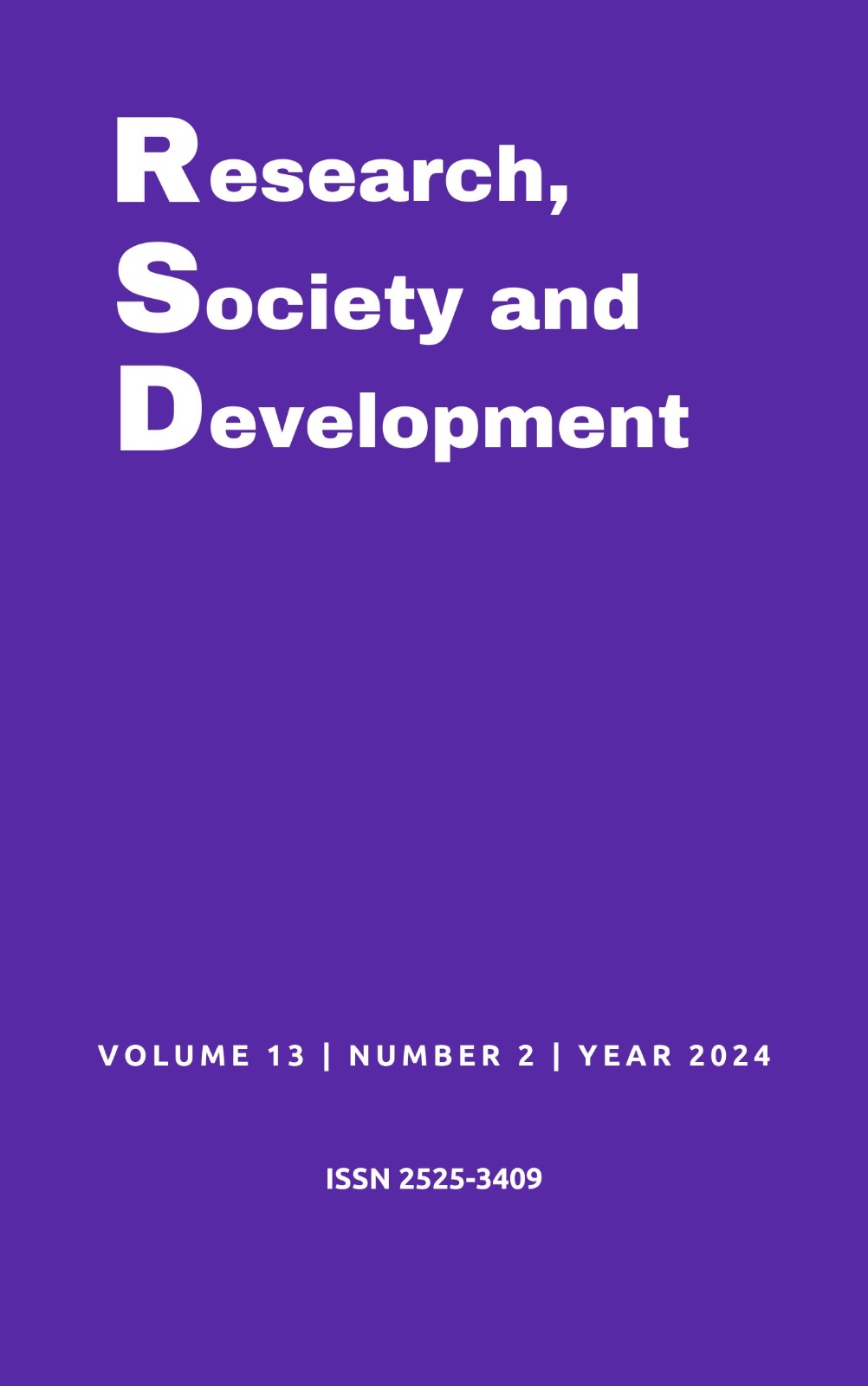Latch Scale and its relationship with the difficulties encountered in breastfeeding: Study in a maternity hospital in western Paraná
DOI:
https://doi.org/10.33448/rsd-v13i2.45063Keywords:
Breastfeeding, Shared accommodation, Newborn.Abstract
Introduction: Breastfeeding plays a crucial role in maternal and child health, providing benefits for both babies and mothers. Despite this, difficulties in breastfeeding are faced due to socioeconomic factors, lack of support and inadequate information. Good breastfeeding not only strengthens the bond between mother and baby, but also contributes to physical, immunological and cognitive development. Objective: to verify whether the newborn's degree of breastfeeding difficulty directly affects the score of the validated LATCH instrument. Methodology: Quantitative and observational study carried out in a hospital unit, sample of newborns in the Maternal and Child Ward during August to December 2022 with inclusion criteria that included full-term newborns, without complications to perform the breastfeeding assessment using the LATCH score and questionnaire with mothers. Results and Discussion: Of the 89 newborns, 7 were excluded. The results showed that 72 babies with breastfeeding difficulties had a significantly lower LATCH score compared to those without difficulties. There was no significant correlation between breastfeeding difficulties and individual LATCH components. Conclusion: Although there is no direct correlation between specific breastfeeding difficulties and individual LATCH components, the overall mean LATCH score was significantly lower in babies with difficulties. This highlights the importance of early assessment and intervention to ensure successful breastfeeding and strengthen the bond between mothers and newborns.
References
Alves, Y. et al. (2019). Avaliação da sucção não nutritiva de recém-nascidos a termo e sua relação com o desempenho da mamada. Rev. Bras. Saúde Mater. Infant., 3, 631-640.
Azevedo, A. et al. (2015). Clinical management of breastfeeding: knowledge of nurses. Escola Anna Nery - Revista De Enfermagem, 19, 3-10.
Carreiro, J. et al. (2018). Dificuldades relacionadas ao aleitamento materno: análise de um serviço especializado em amamentação. Acta Paulista De Enfermagem, 31, 430–438.
Carrijo, M. et al. (2015). Amamentação e as intercorrências que contribuem para o desmame precoce. Revista Gaúcha De Enfermagem, 36, 16–23.
Cirico, M. et al. (2016). Qualidade assistencial em aleitamento materno: implantação do indicador de trauma mamilar. Revista Gaúcha de Enfermagem, 37, 4-8.
Escarce, A. et al. (2013). Influência da orientação sobre aleitamento materno no comportamento das usuárias de um hospital universitário. Revista CEFAC, 15, 1570–1582.
Gomes, S. et al. (2023). Tradução e adaptação para o português da Preterm Infant Breastfeeding Behaviour Scale. Rev. Acta Paul Enferm., 36, 50-58.
Granieri, M. et al. (2022). Dificuldades na amamentação em mães adolescentes. Revista Faculdades Do Saber, 7, 1089– 1098.
Griffin, C. (2022). LATCH como ferramenta sistematizada para avaliação da técnica de amamentação na maternidade. Rev. Acta Paul Enferm., 35, 3181-3190.
Lima, A. et al. (2021). Influence of frenotomy on breastfeeding in newborns with ankyloglossia. Rev. CoDAS, 33, 74-83.
Oliveira, R. et al. (2021). Avaliação do desempenho de nutrizes e recém-nascidos-nascidos durante a mamada no Período neonatal: estudo comparativo. Rev. Cogit. Enferm., 26, 755-780.
Ortega, C. (2021). Revisión crítica de la Escala de Evaluación de la Lactancia Materna LATCH. Un estudio cualitativo. Rev. Matronas Prof., 22, 35-39.
Pereira, V. et al. (2023). Percepções simbólicas e enfrentamentos de mães sobre aleitamento materno. Arquivos de Ciências da Saúde da UNIPAR, 27, 2177-2194.
Silva, J. et al. (2018). Fatores associados ao aleitamento materno na primeira hora de vida em um hospital amigo da criança. Texto &Amp; Contexto - Enfermagem, 27, 49-60.
Silva, L. et al. (2020). Índice de Apgar correlacionado a fatores maternos, obstétricos e neonatais a partir de dados coletados no Centro de Saúde da Família do bairro Dom Expedito Lopes situado no município de Sobral/CE. Revista Científica Da Faculdade De Medicina De Campos, 15, 25–30.
Silva, M. et al. (2022). Mamaterna: caminhos para a construção de uma mãe. Científica Digital.
Tori, F. et al. (2022). Caracteríscas dos neonatos com dificuldade de mamada em um Hospital Universitário: Um estudo epidemiológico. Research, Society and Development, 11, 48-56
Trad, C. (2005). Craniossinostoses primárias: Ensaio Iconográfico. Revista Radiologia Brasileira, 38, 377 – 380.
Vasconcelo, N. et al. (2023). Principais óbices na amamentação e repercussões do desmame precoce: revisão sistemática. Rev. Recima. 21, 40-46.
Downloads
Published
Issue
Section
License
Copyright (c) 2024 Káren Andresa Mendes da Silva; Amanda Ferreira Alves ; Julia Pasqualotto Ertel; Maria Tânia de Oliveira Moreira; José Mohamud Vilagra

This work is licensed under a Creative Commons Attribution 4.0 International License.
Authors who publish with this journal agree to the following terms:
1) Authors retain copyright and grant the journal right of first publication with the work simultaneously licensed under a Creative Commons Attribution License that allows others to share the work with an acknowledgement of the work's authorship and initial publication in this journal.
2) Authors are able to enter into separate, additional contractual arrangements for the non-exclusive distribution of the journal's published version of the work (e.g., post it to an institutional repository or publish it in a book), with an acknowledgement of its initial publication in this journal.
3) Authors are permitted and encouraged to post their work online (e.g., in institutional repositories or on their website) prior to and during the submission process, as it can lead to productive exchanges, as well as earlier and greater citation of published work.


